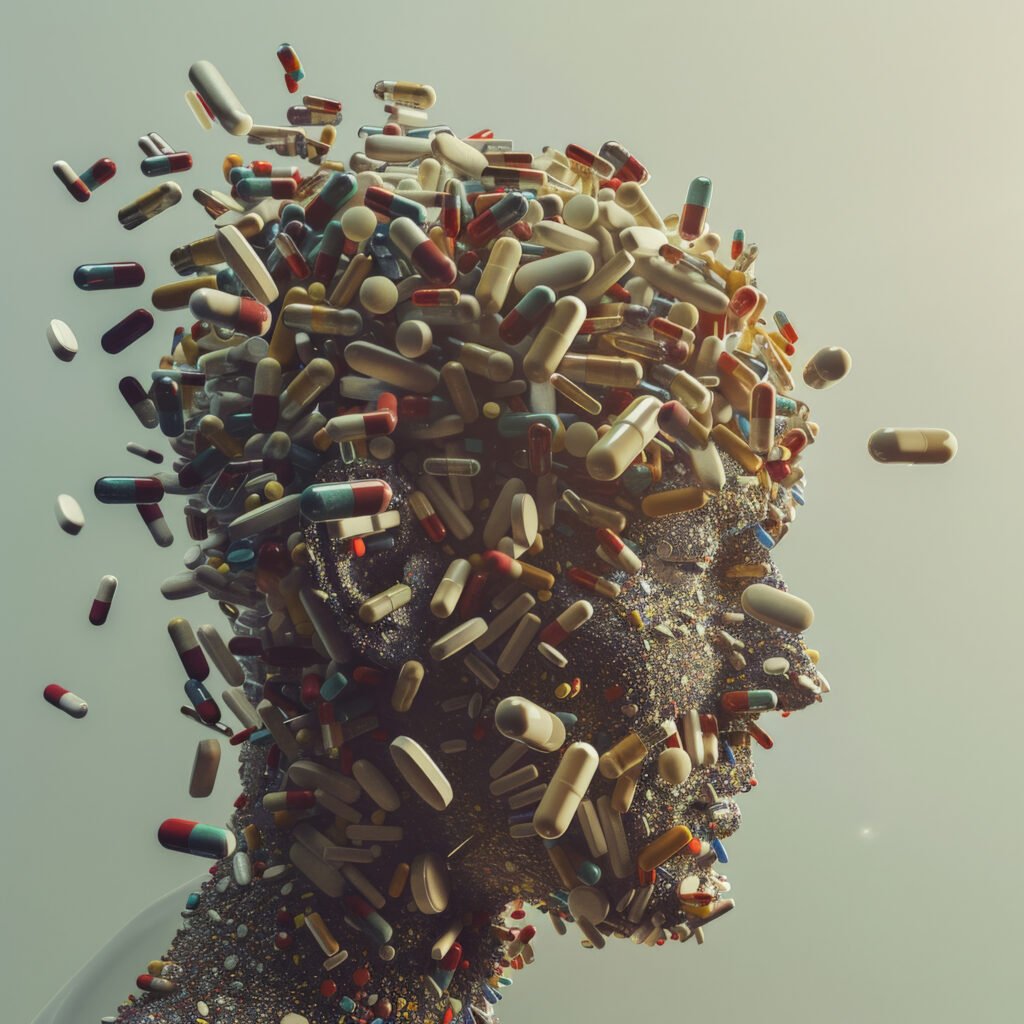In today’s fast-paced world, anxiety and depression are on the rise. According to the National Institute of Mental Health, over 40 million adults in the U.S. experience anxiety disorders each year, and more than 21 million suffer from major depressive episodes. While medications like SSRIs and anti-anxiety drugs are commonly prescribed, they often come with side effects—fatigue, weight gain, sexual dysfunction, emotional numbness, and withdrawal symptoms, to name a few.
But what if there’s a deeper root cause—one that can be addressed before turning to medication?
As a Traditional Chinese Medicine (TCM) practitioner, I believe in addressing the imbalances of the body and mind. Before starting pharmaceutical drugs, it’s worth exploring these 5 crucial factors that often underlie mental health issues:
1. Nutritional Deficiencies
Your brain needs key nutrients to function properly. A diet heavy in processed foods, sugar, caffeine, and alcohol can deplete:
Iron, zinc, calcium
B vitamins (especially B6, B12, folate)
Vitamin D
Essential fatty acids (like omega-3)
Amino acids (the building blocks of neurotransmitters like serotonin and dopamine)
Without these nutrients, your brain cannot regulate mood, sleep, and focus effectively. If you’re feeling anxious, foggy, or low-energy, consider a nutritional assessment, cleaning up your diet, and using supplements strategically.
2. Sleep Hygiene
Poor sleep is a major contributor to mental health decline. Staying up late or having irregular sleep disrupts the brain’s natural detoxification process. During deep sleep, the brain flushes out waste—including the plaques associated with cognitive decline.
Lack of restorative sleep can lead to:
Brain fog
Poor memory and concentration
Worsened anxiety or depressive symptoms
Creating a consistent sleep routine and reducing screen time before bed can significantly support emotional balance.
3. Lack of Movement
A sedentary lifestyle increases the risk of:
Weight gain
Low self-esteem
High blood pressure, cholesterol, and blood sugar
Exercise helps release endorphins, our natural “feel-good” chemicals. Even just 30 minutes a day of walking, stretching, or dancing can uplift your mood and improve resilience against stress.
4. Poor Stress Management
Many people power through stress without healthy coping tools. Over time, chronic stress can lead to burnout, substance use, and worsening mental health.
Instead of pushing through, learn to reset your nervous system with:
Meditation
Deep breathing
Yoga or tai chi
Grounding techniques
Taking regular breaks and vacations
5. Hormonal issues, such as sluggish thyroid (TSH optimal level 2-2.5), irregular menstruation, women who have heavy cycles often feel overwhelmed, and hard to focus due to low blood iron. Menopause, andropause due to dropped estrogen and testerone level.
The TCM View on Anxiety and Depression
In Traditional Chinese Medicine, anxiety and depression are not isolated conditions—they’re signs of imbalance in the body. Common TCM patterns include:
Spleen Qi Deficiency with Dampness/Phlegm Misting the Mind
Liver Qi and Blood Stagnation
Heart Fire or Yin Deficiency
Kidney Qi or Essence Deficiency
Each person presents differently, so individualized herbal formulas and acupuncture treatments are essential. By restoring balance in the meridians and organ systems, TCM can help regulate mood, reduce anxiety, and ease depression naturally and sustainably.
What Can You Do Today?
Before starting long-term psychiatric medications, consider a comprehensive mind-body evaluation. Address your nutrition, sleep, movement, hormonal disorder and stress patterns. And if you’re looking for a holistic, time-tested system of healing, consider Traditional Chinese Medicine.

